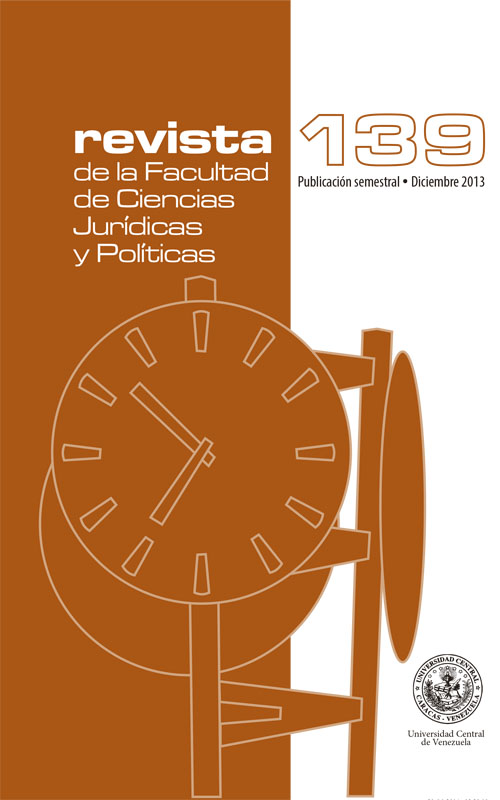LA POLÍTICA EXTERIOR DE LA ERA BOLIVARIANA: SUS CONTINUIDADES Y RUPTURAS Y SU TRANSFORMACIÓN EN “RÉGIMEN HÍBRIDO” (2004-2013)
Palabras clave:
Interés Nacional, Hegemonía, Intereses Cognitivos, Identidades, Percepciones, Intersubjetividad, Superestructura, Política ExteriorResumen
La Política Exterior Venezolana de Hugo Chávez rompió con la “Continuidad”de la misma en términos de Intereses y alianzas estratégicas conrelación a lo hecho en la época de la “Democracia Representativa” (1958-1999). Así, es nuestro interés, estudiar los orígenes ideológicos y políticosdel Socialismo del Siglo XXI reflejados en “El Plan Socialista Simón Bolívar2007-2013” así como en la propuesta del “Programa Patria (2013-2019)”como profundización del primero; lo cual nos permitirá analizar la PolíticaExterior Venezolana para la construcción de un “Mundo Multipolar” através del Constructivismo Social y la Teoría Crítica de las RR.II. Comoforma de actualización a las circunstancias actuales luego del fallecimientode Hugo Chávez –loque ha generado una transición a la presidencia deNicolás Maduro, ganador de las elecciones del 14 de abril de 2013- estudiaremosel proceso de “legitimidad y estabilidad política del gobiernobolivariano después de Chávez”, y su transformación en un “RégimenHíbrido o Autocracia Competitiva” que avanza a formas cada vez mástotalitarias para mantenerse en el poder. El artículo recurre a un marco dereferencia teórico y metodológico basado en la teoría crítica y el constructivismosocial cuyos aportes permiten, la primera, analizar las relaciones entérminos de hegemonía con énfasis en el papel de las potencias mundiales;y el segundo, explorar la construcción intersubjetiva de Intereses, Identidades y Percepciones de los Estados, resultante de sus interacciones en elSistema Internacional.
Abstract
The “Hugo Chavez´ foreign policy” broke its continuity in terms of interestsand also strategic alliances from the previous stage of the RepresentativeDemocracy (1958-1999). So, it is our main interest to study the ideologicaland political origins of the so called “Socialism of the Twenty-FirstCentury” developed through “Simon Bolívar First Socialist Plan” (2007-2013), as well as through the “Programa Patria” (2013-2019). These twoessential documents give us the opportunity to analyze Venezuela´s newforeign policy whose main objective is to build a “Multi-Pole” World. Forthis task we apply the Social Constructivism theory as an analytical framework.As an update of this paper to current times when Hugo Chavezis dead, and a transition process gave the presidency to Nicolas Maduro–who won the April 14th 2013 elections- we are going to study the real politicallegitimacy of the government and its transformation on a “HybridRegime or Competitive Autocracy” which its taking a totalitarian form inorder to keep power. The article employs a theoretical and methodologicalframework based on critical theory and social constructivism whose contributionsallow, the first to analyze the relationships in terms of hegemonywith emphasis on the role of world powers; and the second, to explorethe intersubjective construction of Interests, Identities and Perceptions ofStates resulting of their interactions in the International System.


